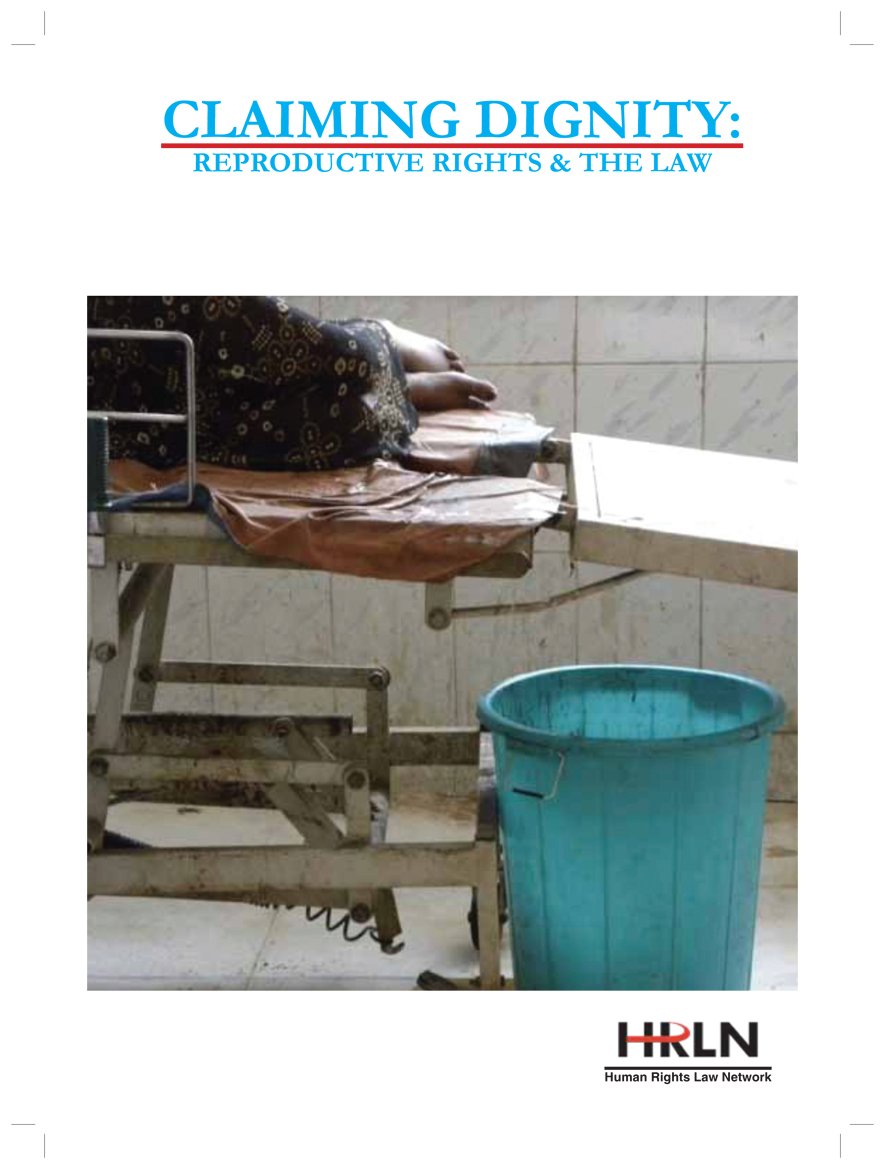
Claiming Dignity . 2nd Edition
Introduction by: Kerry McBroom, Compiled and Edited by Cheryl Blake
Today in India, one woman will die from a pregnancy related cause every 10 minutes.1
Public health officials in India routinely deny women active control over their reproductive
choices. In the first half of 2012, scandals involving mass hysterectomies and unethical
and illegal sterilization camps made headlines. HIV/AIDS positive, Dalit, and Below
the Poverty Line (BPL) women have been evicted from hospitals while in labor. Child
marriage continues to limit opportunities for millions of Indian women and four state
governments have completely banned sexual health education for adolescents. Despite
increased awareness, government schemes, and international pressure, women in India
continue to face immense obstacles in accessing or exercising their reproductive rights.
Public health officials in India routinely deny women active control over their reproductive
choices. In the first half of 2012, scandals involving mass hysterectomies and unethical
and illegal sterilization camps made headlines. HIV/AIDS positive, Dalit, and Below
the Poverty Line (BPL) women have been evicted from hospitals while in labor. Child
marriage continues to limit opportunities for millions of Indian women and four state
governments have completely banned sexual health education for adolescents. Despite
increased awareness, government schemes, and international pressure, women in India
continue to face immense obstacles in accessing or exercising their reproductive rights.
Since SLIC published the first edition of Claiming Dignity in 2009, lawyers throughout
India have filed petitions on myriad reproductive issues including maternal mortality,
denial of reproductive health care, discrimination against HIV positive pregnant
women, coercive population control policies, inhumane sterilization camps, unsafe
abortion services, unethical surrogacy, and sex selective abortion. The work of diligent
advocates throughout India has spurred High Courts in many states to issue increasingly
progressive judgments in reproductive rights cases. In this context, momentum is building
for reproductive rights litigation; now is the time to investigate, document, litigate, and
ensure implementation of Court orders.
India have filed petitions on myriad reproductive issues including maternal mortality,
denial of reproductive health care, discrimination against HIV positive pregnant
women, coercive population control policies, inhumane sterilization camps, unsafe
abortion services, unethical surrogacy, and sex selective abortion. The work of diligent
advocates throughout India has spurred High Courts in many states to issue increasingly
progressive judgments in reproductive rights cases. In this context, momentum is building
for reproductive rights litigation; now is the time to investigate, document, litigate, and
ensure implementation of Court orders.